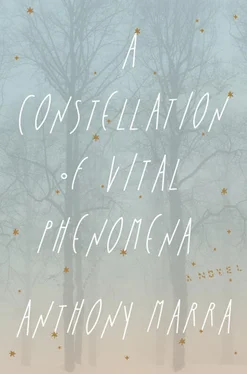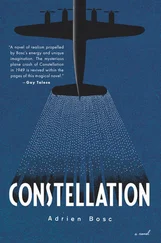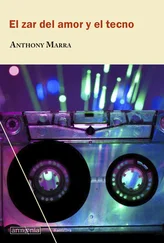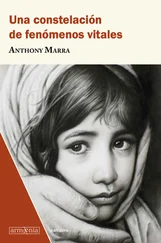“That’s not …” She struggled to push words into the sentence. She would regret this. She knew she would. But she hadn’t seen her sister’s face in twelve months, two weeks and three days, and even more than Natasha’s face, even more than her return, she wanted Natasha to end. “Her nose was smaller,” she said.
For the next half hour she gently corrected him whenever he strayed. He hadn’t forgotten her face, she told herself; she was only helping him remember. And if she was deluding herself, so what? Weren’t delusions better than desperation, false hopes better than none at all? As Natasha’s calm, untroubled face emerged, Sonja’s heart climbed her ribs. It drummed against each one, then rose to her neck, pressing against her throat. In a refugee camp or foreign country, somewhere far away, Natasha was safe. He drew a chin she would recognize in a crowd of thousands, then down to her perfect, unblemished neck. Not one cigarette burn; she hadn’t told him to put them there. Something spectacular was happening in her chest. She hadn’t expected this. On one sheet of paper in a notebook of two hundred and twenty, and with no more than a few millimeters of pencil lead, he returned Natasha to her and to the maternity ward.
“Please stop,” she said.
“I thought you wanted this?”
He reached for her shoulder and she turned away. “I’ll see you tomorrow,” he said after a moment.
“Take this with you.”
He lifted Natasha from the counter and carried her from the maternity ward.

SHE WAS SOLD to a brothel within bullet range of Kosovo, and from there south through the cinderblock city of Tirana and across the Adriatic, where, rocking on the dull green water, she saw the face of the moon for the first time in five weeks. It, too, was cratered with cigarette burns. Her passport was her deed, her title, and bill of sale, carried by whoever owned her today, traveling within reach of her hand but never in it. Through it all, she could count on a ritual as fixed in the day as sunrise and set. Every morning a shot of heroin inflated her head so it floated a meter above her neck until noon. By afternoon she’s itching. By evening she’ll do whatever they ask to get a shot that night. She’s not the high-priced, high-class call girl she had imagined, borne by limousine to fancy hotels, where she knows the doormen by name and tips them generously when she saunters into the night a free woman. She couldn’t buy a full bag of groceries with what the johns pay for thirty minutes. It feels like autumn, but maybe it’s spring. She can’t tell, fifteen stories above the nearest leaf. She can’t remember the year or the city, the taste of fresh air or the feel of her passport, her sister’s voice or the love and desperation that compelled her to flee, but she stands by the window and remembers the view; in eight months, when it’s all over and she’s taking three-hour showers in a women’s shelter, she will walk to the bathroom mirror and, angle by angle, she will draw it on the steamed glass. The men call her Natasha, but she doesn’t know how they know her name. Finally Katya tells her that’s what every girl from Eastern Europe is called, we’re all Natashas to them. An average day consists of ten men, three cheeseburgers, eight glasses of tap water, and two shots. A toothbrush, no toothpaste. A roll of Certs, one after each man. The repatriated women are right: modern-day slavery, but there’s nothing modern about it. Eight of you sleep on four bunk beds crammed into a bedroom. In the early morning, midafternoon, whenever the clouds part, when the heroin slithers into your blood and you forget your name, you stand at the window and thread the eternity of sky through needle-head retinas. Block after block the city goes on and every last building, right up to the horizon, stands. Sergey, the pimp, whose brother was sent back from Grozny in a zinc can, quit smoking last week or last month and the spent pieces of his nicotine gum, spat out and dried on the floor, look like little gray brains. One Natasha died, seven Natashas left; a new Natasha walked in the room and asked if this was where the au pairs slept. You are all replaceable, all disposable. Sergey reads business books and listens to lectures on free-market capitalism and, sometimes, in the middle of it, you can hear the lectures through the wall, through the grunting flab atop you, and listening to free trade and commodity economy leaves you with a rich nostalgia for the relative generosity of totalitarianism. There is the night, the last night, the next night. The belt around your ankle, the two taps of the syringe, the blood into the barrel, the plunger pushing in. There is the woman named Anzhela but called Natasha. The woman named Nadya but called Natasha. The woman named Natasha, called Natasha.

AT DAYBREAK KHASSAN left for the service road half hoping to intercept Akhmed, but all he found was a fresh set of footprints. Not knowing what else to do, he walked back and forth, urging the dogs to do likewise, and together they turned five kilometers of snow into a riddle no one could solve. Khassan had taken off his gloves, periodically oiling his fingers with butter, and for five kilometers lapping tongues warmed his knuckles. The bald one, Kashtanka, shivered like a prenatal rat, and several times Khassan paused to reattach the blanket tied by twine around the dog’s pale torso. In summer he bathed the dogs. If one fell sick he cared for it. At the village edge, he knelt and they gathered to him, leaping, licking his cheeks, leaning their paws on his back and panting in his ears, diseased, unwashed, his, his, his. When he stood, all six followed with Sharik at the rear. It wasn’t yet nine o’clock. The day stretched out and his path in it lay as meandering and meaningless as the one he had left. Before the bend in the road he saw Akhmed’s house and across from it the gap that had been Dokka’s. If he had seen Akhmed that morning, he would have had to ask permission to visit Ula; if he had asked permission, he might have been denied. It was a better excuse than the frigid air to stay curled under the covers those extra minutes.
The dogs lounged in the snowy lawn to wait for him. He crept through the shadows of the living room, careful not to disturb the curtains, and into the bedroom where Ula slept fitfully. He hesitated to wake her, as if he were no more than her troubled dream and would dissolve if he touched her. Her hair clumped in greasy cords and she smelled of talcum powder. In the kitchen he filled a stew pot with clean water and set it beside the bed. He drew the covers to Ula’s chin, so when she woke she wouldn’t worry about her decency. Then, reluctantly, he rubbed her arm.
“Why are you here?” she asked without even the suggestion of surprise in her face.
“Do you remember me?” he asked, more urgently than he had intended.
She narrowed her eyes.
“I must have lived a thousand lives before this. I was a bird. I was a bug. I lived in the leaves. I don’t know which life is the hallucination.”
“You’re Ula,” he said. “You’re married to Akhmed.”
“Why are you here?” Again she asked the question; again he didn’t answer.
Because his son was the reason she spent the day alone. Because keeping her comfortable, keeping her company, caring for her was the least he could do. Because he was lonely. Because he had forgotten a woman’s companionship. Because the thought of talking himself senile to a pack of feral dogs didn’t appeal to him this early in the day. He looked to the stew pot of water beside the bed. Because she forgot. Because she forgot everything he said. “I’m here to wash your hair.”
Читать дальше













